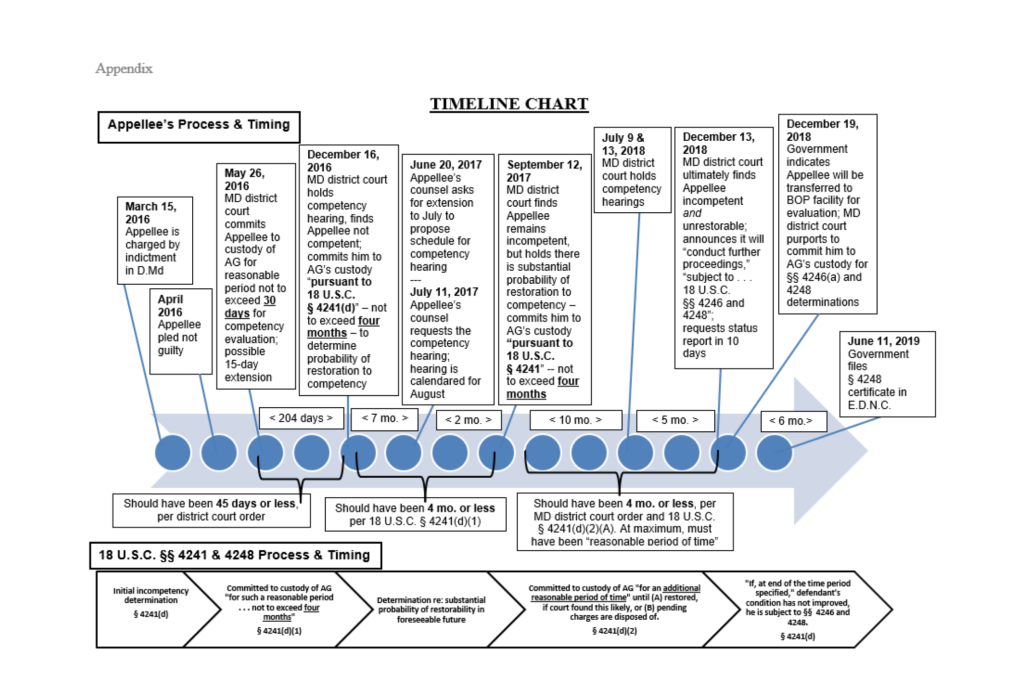

United States v. Wayda (Thacker 7/27/2020): Previously, the district court declared the defendant incompetent to stand trial. Six months after that determination, the Government filed a request to have the defendant civilly committed to the custody of the Attorney General and certified as a “sexually dangerous person” under 18 U.S.C. § 4248(a). The Fourth Circuit held that the Government’s request for the defendant’s civil commitment was untimely. The court went on to say that the Government failed to initiate civil commitment proceedings while the defendant was being legitimately held. Thus, the Fourth Circuit affirmed the district court’s judgment. Full Opinion
United States v. Brunson (Niemeyer 7/31/2020): The Fourth Circuit held that three wiretap orders from the Department of Justice (“DOJ”)—which included only the title, not the name of the DOJ official authorizing the wiretap—were sufficient orders that complied with the Wiretap Act, 18 U.S.C. § 2510 et seq. The court reasoned that the (1) “persons authorized by the [Wiretap] Act properly authorized the applications; (2) on their face, the orders identified the officials who authorized the applications, although not by name; (3) the orders referred to applications which did contain both the title and name and (4) together as one package, the applications and orders were submitted to the judge and later to [the defendant], [thus] both actually knew both the title and name of the authorizing officials.” Furthermore, the court determined that even if it assumed that there was a technical defect in the wiretap orders, it would not render the order “insufficient” under § 2518(10)(a)(ii) because all the information required under the Act was contained on the face of the orders. Thus, the court affirmed the district court’s denial of the defendant’s motion to suppress. Full Opinion
